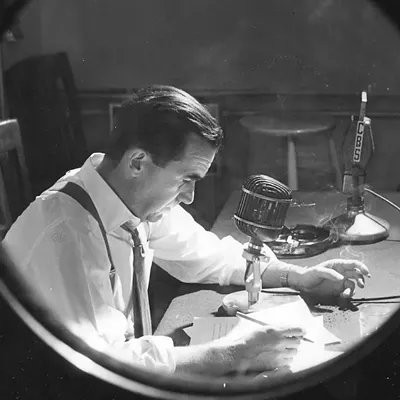Some, in denial I dare say, call Libby's trial and sentence "purely political." Might I set them straight? "Political" had nothing to do with Patrick Fitzgerald's decision to go after Mr. Libby. Fitzgerald was investigating not just the fact of a leak, which on the face of it, suggested that laws had been violated; rather, his investigation went to the question of motive. Did anyone seek to use the leak to "out" CIA undercover agent, Valerie Plame, as a way of getting even with her husband, Joe Wilson? Did anyone say, "let's get that woman?" If so, who? These were always the questions.
Once Dick Armitage came forward Fitzgerald had "a" leaker; however, he became convinced that Armitage had no motive. The question then remained, were there other leakers, or people who knew what they were doing but did it anyway? To follow that line of inquiry Fitzgerald needed Scooter Libby to tell the truth. But Libby's cover up and perjury effectively stopped the investigation. And that's not politics as usual; that's a serious crime, especially under the circumstances.
At the time of the sentencing Fitzgerald had one last card to play. Perhaps, faced with doing time, Libby could be persuaded to tell the truth in exchange for his freedom. But Bush grabbed Fitzgerald's card before he could play it. Moreover, because Bush didn't pardon Libby, rather only commuted his sentence, no Congressional committee can take up where Fitzgerald left off because Libby is appealing the part of the sentence that still stands and therefore would not be allowed to testify. Game, set, match.
To place Bush's decision in context, let's roll back the clock a few years and look in on Governor Bush. He is busy this day -- as busy as this lazy man ever is. Another couple of death warrants await his signature. His press stooges will later, in somber tones, tell the gullible press, that the governor has agonized over his latest decision to send yet another convict to death. Because we now know more about what Alberto Gonzales, the governor's main mouth piece, was feeding him by way of "completed staff work" we are not surprised that this day the good governor spends no more than fifteen minutes making his first decision. Then, because he has better things to do, he takes even less time with the second death warrant. Five minutes on this one. Even back then he was "the decider," which is shorthand for "I'd rather be trimming brush back at the ranch so just tell me where to sign."
During his years as governor, George W. Bush set records for signing death warrants, 154 during his five years in office. Of these 152 were executed before he left office.
How does Texas look when viewed against national numbers? Well, during this same period of time the total number of executions throughout the United States was 426. If the Texas execution rate were to approximate the ratio between the Texas population numbers and the U.S. population numbers we would expect Texas to have executed 32 convicts. Bush executed almost five times that many. Even subtracting the populations of the respective 12 states which have outlawed the death penalty the Texas numbers should have risen only by four to 36, nowhere near 154. The long and short of these statistics is that under George W. Bush Texas became a mindless killing field.
Any number of those executed, we now know, were disabled. More than a few were found to have the IQs of children. Some had been denied procedural due process. Moreover, it was during this period that DNA evidence was emerging across the country to show that many an innocent person had been executed (findings that caught every other governor's attention). And then there was all that statistical evidence showing that the entire process was heavily biased against the poor and minorities. But none of this information caused Bush to ask even the most obvious questions.
Worse than his intellectual laziness, Bush has shown that he also lacks empathy. It isn't as if he didn't send out signals more than six years ago. Recall the execution of Karla Faye Tucker, an execution opposed by the religious right, Newt Gingrich, the Pope, the UN and countless others. In a late 1999 interview conservative talk show host Tucker Carlson unintentionally put the callow son on display. After informing Carlson that he didn't meet with any of Tucker's many advocates, Bush recalled Karla Faye Tucker's Larry King interview less than a month before she was executed on February 3, 1998.
Bush: "He (King) asked her real difficult questions like, 'What would you say to Governor Bush?'"
Carlson: "What was her answer?"
Bush: "Please, ('Bush whimpers, his lips pursed in mock desperation' -- Carlson's characterization) don't kill me."
Recalling the interview, Carlson said that he must have looked shocked "because, he (Bush) immediately stops smirking." I do recall how stunned I was when I heard of Bush's remark, complete with mocking tone and smirk. "My God," I gasped, "he has reduced her to an object. He didn't execute her, he merely discarded her."
And this gets us back to Scooter Libby. Bush couldn't turn a friend into an object to be discarded. Now could he?
















